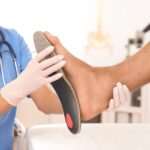Preventive health checkups help detect potential issues early, ensuring better long-term health and reducing the risk of severe conditions.
Foot Pain Seems Simple — But It’s Not
It’s in your feet — so the issue must be your feet… right?
Not so fast.
At YFS (Your Form Sux), one of the first things we teach clients is this: Pain doesn’t always show up at the source of the problem.
And in many cases, foot pain is actually a symptom of postural imbalances further up the chain.
So if your heels, arches, or toes are always lighting up, it’s time to stop blaming just your shoes — and start looking at your posture, alignment, and movement patterns.
👣 First, What Kind of Foot Pain Are We Talking About?
- Plantar fasciitis (heel or arch pain, especially in the morning)
- Ball-of-foot pain (aka metatarsalgia)
- Toe pain or bunions
- Heel spurs
- Shin splints or Achilles irritation
- General foot fatigue or burning
You might also feel tight calves, flat arches, or an uneven gait that you can’t quite explain.
Spoiler: it’s all connected.
🧍♂️ The Posture-Foot Connection: How It Works
Here’s the chain reaction we see all the time:
- Poor core control or pelvic position → hips rotate → knees collapse inward → feet overpronate → foot structures take the hit
- Slouched upper body → weight shifts forward → more pressure on the forefoot → burning pain or tension in the toes
- Locked knees or glutes that don’t fire → feet overwork to stabilize → chronic arch or heel pain
In other words, your feet are reacting to how the rest of your body moves — or doesn’t.
Your posture is telling your feet to pick up the slack.
📉 Postural Habits That Wreck Your Feet
- Anterior Pelvic Tilt
Pelvis tilts forward → center of gravity shifts → forefoot overload → arch collapse, bunions, burning pain. - Collapsed Knees (Valgus)
Knees cave in → feet forced into pronation → plantar fascia strain and irritation. - Poor Core Engagement
Feet “grip” to compensate for lack of balance — causes toe/midfoot tension. - Rounded Shoulders + Head Forward
Weight shifts to forefoot → calf tightness, Achilles strain, metatarsal overload. - Locked Knees + Tucked Glutes
Creates rigidity → limits foot mobility → leads to fatigue and overuse.
🔍 What We Look for at YFS
We never just treat the feet. When someone comes in with foot pain, we assess:
- Spine, hip, and pelvis alignment
- Gait and standing posture
- Knee tracking and load distribution
- Foot structure under load (not just on the table)
- Balance, core activation, and mobility restrictions
- Nervous system response to movement (including fight/flight adaptations)
The goal isn’t to just relieve pain — it’s to retrain your entire system so the pain doesn’t keep coming back.
🛠 Real Fixes — Not Just Orthotics and Ice
Sure, orthotics might help for now. But if you don’t address the postural cause, your body will just find a new place to hurt.
At YFS, our foot-pain recovery plans usually include:
- Postural re-training
- Strength work for glutes, hips, and deep core
- Gait correction
- Foot mobility and stability drills
- Manual therapy (when needed)
- Orthotics (only when paired with a bigger movement strategy)
Your body wasn’t designed to fall apart at the feet — it was built to move in sync, head to toe.
Bottom Line: Foot Pain Is a Message — Not Just a Local Problem
If your feet hurt, your body’s trying to tell you something about how you stand, walk, and move.
Ignoring it won’t help. Padding it won’t fix it. Posture and movement rehab will.
Tired of your feet hurting — and no one looking at the rest of your body?
Book your full-body movement assessment at YFS and let’s figure out what your feet are trying to say — and how to fix the root of it for good.






